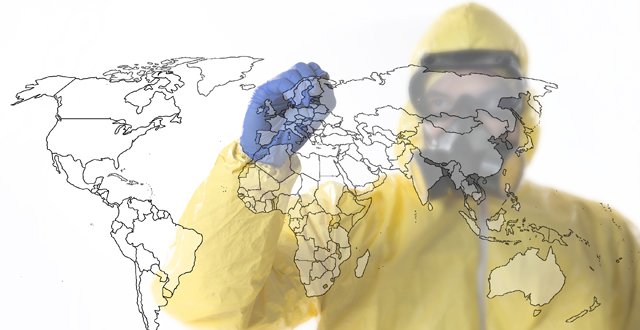
The Ebola outbreak shows that public health in the Democratic Republic of Congo is in a state of emergency
The outbreak of Ebola infection in the Democratic Republic of the Congo (DRC) is one year old this month. It shows no signs of abating, despite intensive efforts and the use of a vaccine of proven efficacy. So what is going on?
Initially, I thought it may have been another example of
the World Health Organisation (WHO) responding too slowly, as it did during the
last major outbreak in West Africa in 2014. It was the end of July before the
Organisation declared the DRC outbreak a public health emergency of
international concern (PHEIC).
The latest WHO figures show a total of 2,612 reported
cases, including 2,518 confirmed and 94 probable cases, of which 1,756 cases
died, giving an overall mortality rate of 67 per cent.
Attempts to contain Ebola have been hampered by an
ongoing conflict in eastern DRC, where dozens of armed groups are active.
More than 200 health facilities have been attacked since January.
Dr Seth Berkley, Chief Executive of Gavi, the vaccine
alliance, says “the response will need to go beyond the immediate Ebola crisis
and address much deeper long-term issues that have plagued the region — issues
that ultimately created this situation in the first place. Because in truth, it
is not just Ebola, but more broadly the situation in the DRC itself, that
represents a public health emergency, and one that really should be of
international concern.”
He points out that Ebola is not the only epidemic the
country is experiencing — nor is it the most deadly. Poor infrastructure and a
weak health system are at the root of a measles outbreak that is currently
sweeping across most of the DRC. Since January, there have been more than 100,000
measles cases in 23 of the country’s 26 provinces, resulting in more than 2,000
deaths. This represents a seven-fold increase compared to the previous year.
At the same time, there have been more than 13,400
suspected cases of cholera, and 266 deaths, leading to emergency vaccination of
more than 1.2 million people.
When we look at this broader picture, the poor outcomes of
efforts to stop the Ebola outbreak make more sense. It is a clear indication
that public health in the DRC is itself in a state of emergency.
There is also a lack of trust in authority. According to
Berkley, in the DRC, this is not about conflict, it is about an inherent
mistrust and suspicion of the government and any outside influence. If an Ebola
emergency response plan is to be effective, it will need to take this into
account.
Distrust in authority is also a fertile ground for a range
of rumours about the Ebola outbreak, including that international organisations
are deliberately infecting people with the virus. And aid workers are commonly
but erroneously believed to be harvesting organs from victims.
About a third of deaths are in the community — a sure sign
that people do not trust health workers and are not seeking treatment, thereby
spreading the disease to neighbours and relatives.
Recurrent and hard-to-control outbreaks of infectious
diseases suggest we may be entering a new phase of high-impact epidemics. It
may be that we are experiencing a ‘perfect storm’ of converging factors that
make epidemics more likely. These include climate change, emerging diseases,
exploitation of the rainforests, large and highly-mobile populations, weak
governments and conflict.
The WHO must not just aim to stop the outbreak from
spreading to other countries: It must work at building trust within the
affected communities, ensuring that efforts are not perceived by locals as
being undertaken merely to protect others, and then leaving once the job is
done. It means that, in addition to tackling the virus, there is as much focus
on strengthening health systems in affected areas to address the broader health
issues these communities face.
Berkley suggests aligning the Ebola response with other
initiatives aimed at addressing broader health issues, such as the Mashako
Plan. Created last year, it will enable 220,000 more children in the DRC to be
protected against preventable infectious disease through increased access to
vaccines, improved monitoring and inspection of health zones, and more
co-ordinated health financing.
Perhaps I’m being
too hard on the WHO. But as we know, prevention is better than cure, so more of
an effort to put health infrastructure in place in Africa before the next
epidemic hits wouldn’t go amiss.





Leave a Reply
You must be logged in to post a comment.